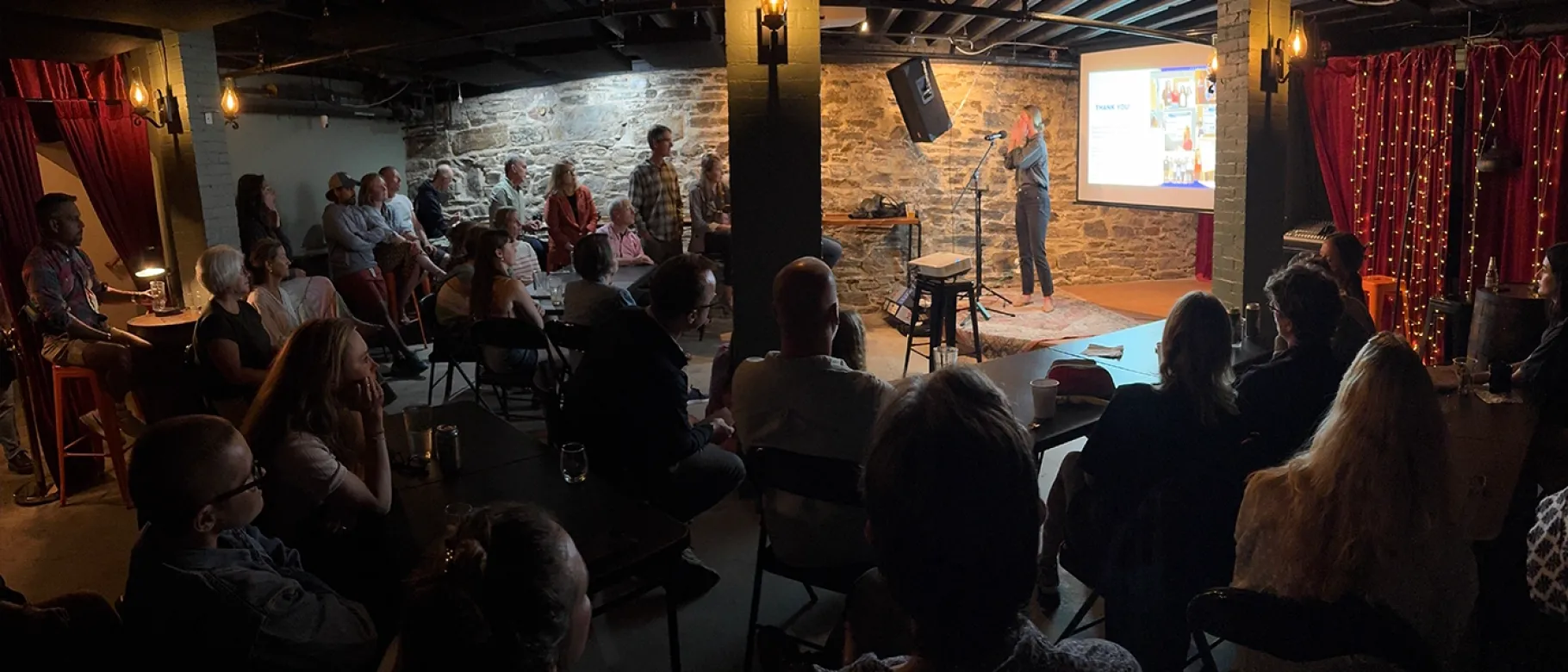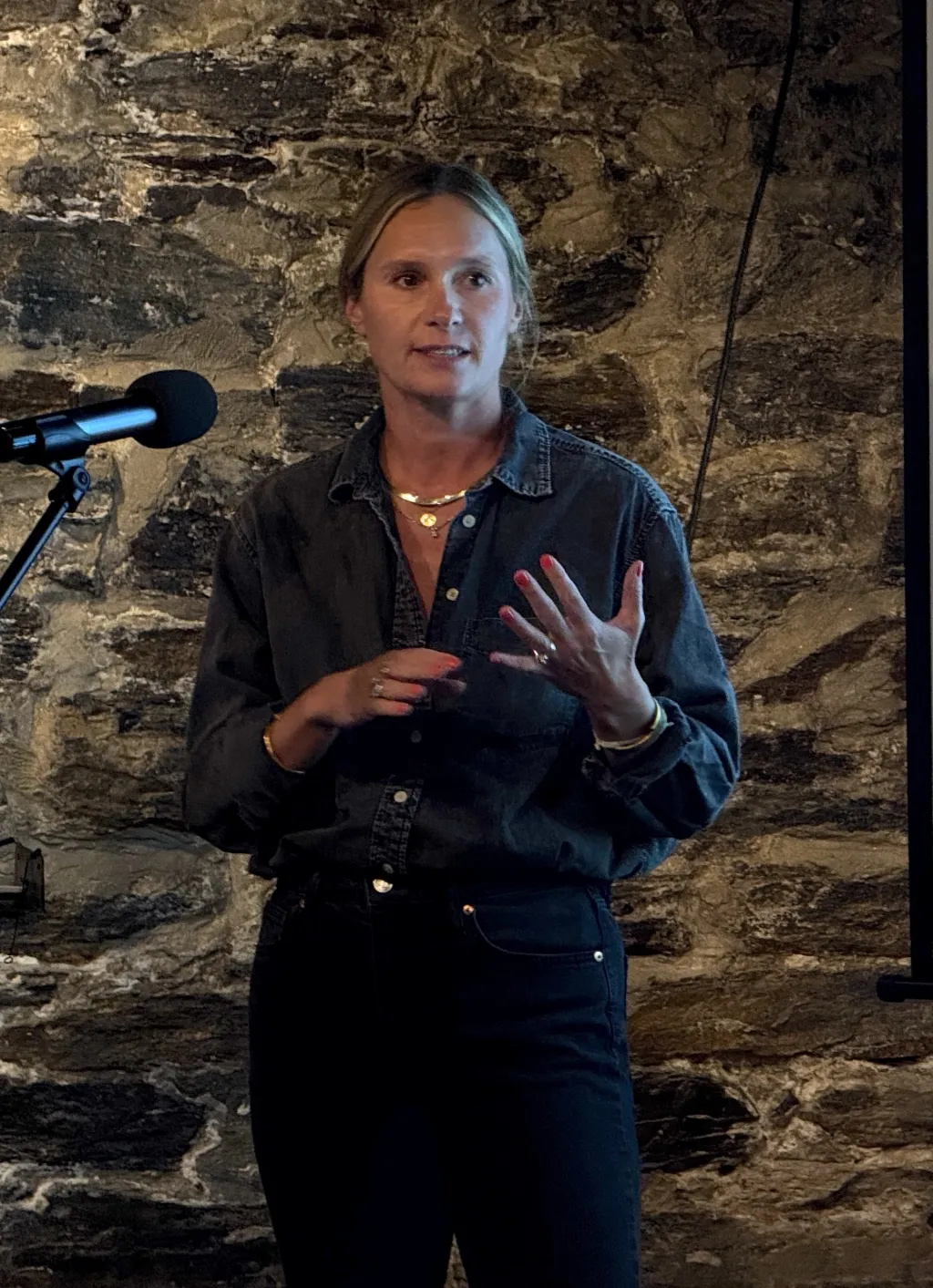UNE welcomes dozens for first community Science Café event
UNE relationship scientist Julie Longua Peterson, Ph.D. described findings from her 15-plus years as a behavioral researcher as part of UNE’s effort to promote scientific literacy

The University of New England welcomed nearly 60 attendees to the first event of its new Science Café series, held at Novel in Portland on Aug. 19, during which faculty researcher Julie Longua Peterson, Ph.D., presented her research and the science of relationships and the factors that influence intimacy — and avoidance thereof — among romantic partners.
The recently announced Science Café series was launched by UNE’s Center for Excellence in the Neurosciences (CEN) to engage the University’s home communities in the broad world of scientific research. The series enables UNE researchers and faculty to engage non-scientists in a diverse array of topics and informal conversation to spark curious minds and promote scientific literacy.
“The Science Cafes serve to foster public awareness of UNE’s own groundbreaking research initiatives, from neuroscience to biotechnology and pharmaceutical development to marine biology, environmental monitoring, human behavior, and more,” said Michael Burman, Ph.D., a professor of psychology who organized the series as CEN’s program director.
In her 15-minute talk — entitled “The Hidden Psychology of Connection: Understanding the Invisible Forces that Guide How We Give, Receive, and Avoid Intimacy in Relationships” — Peterson, a professor psychology at UNE, presented her research on what she described as “the psychological tug-of-war between the deeply human need we have to feel close to the people we care about but also the need to protect ourselves from unwanted social pain or the pain of rejection and vulnerability.”
Peterson shared many findings from her 15-plus years as a behavioral researcher with a robust crowd of UNE students and faculty and members of the public.
Among Peterson’s most widely discussed were results exploring the conflict between connection and self-protection: People with positive self-associations, or high implicit self-esteem, are more willing to risk connection despite the potential for pain, Peterson said.
People with more negative associations with the self, on the other hand, more often have the opposite reactions by pursuing self-protection.
Following her talk, Peterson fielded questions from a rich assortment of attendees that focused on, among other topics, attachment styles and self-esteem, the influence of “nature vs. nurture” in relationships, research methods, and so-called “parasocial relationships,” or one-sided relationships with people outside one’s own social sphere, such as celebrities or fictional characters.
Peterson spoke frankly about the importance of science and community education, sharing that her work — and that of other researchers — goes far beyond the lab but has meaningful impact on people’s lives.
“Science is really important to who I am, my identity, and my life, and it’s really an honor to get to share it with all of you tonight,” she said to a standing-room-only crowd in the coffee shop-slash-bar’s basement event space. “Through my research, I hope that I — and other relationship scientists — can continue to find ways to help people reach for connection in the right moments and benefit from all that those relationships have to offer us,”
The next event in UNE’s Science Café series will be held Thursday, Sept. 4, at 6 p.m. at Elements in Biddeford.
There, Will Kochtitzky, Ph.D., and Jennifer Brousseau, Ph.D., both assistant professors in the School of Marine and Environmental Programs, will present “Storms, Sea Level Rise, and the Future of Maine’s Beaches,” focusing their work to study the impact of climate change on Maine’s coast.
